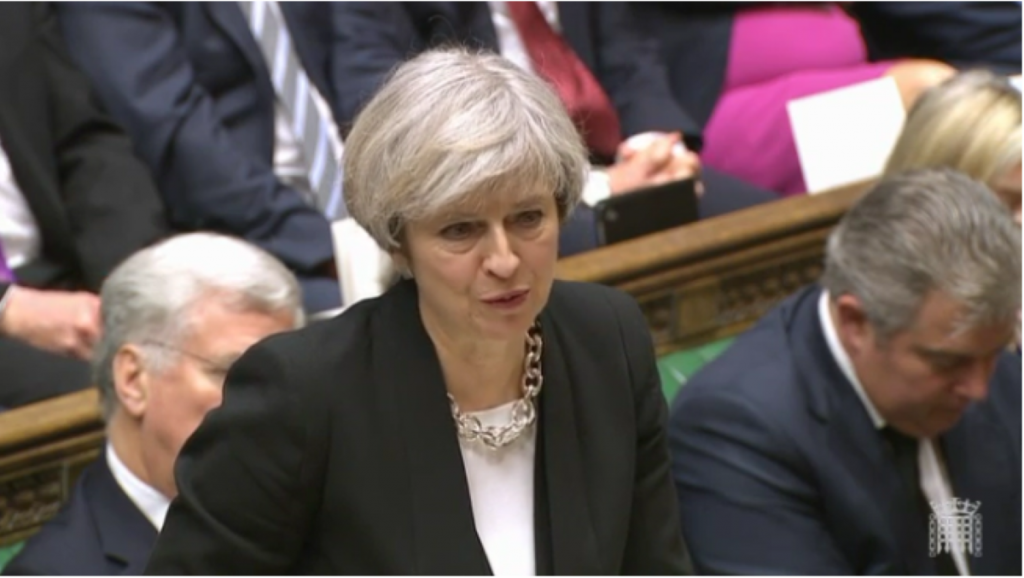By Angela Rayner
If you talk to anyone involved in education, particularly those working in schools, the conversation will rapidly turn to budgets, which for many are approaching crisis point.
It comes to something when parents are being asked for voluntary contributions to help keep their children's schools running. This is as well as reports of subjects being cut and the length of the day being shortened.
Some head teachers have even raised concerns that they could be facing the prospect of class sizes of up to a hundred.


But apparently the government doesn't talk to those who run our schools enough to be aware of this. This is not a cheap accusation that I throw at them as the shadow education secretary, but the astonishing conclusion of the public accounts committee (PAC), which has a majority of Conservative MPs.
Their report found that the department relied on national statistics to tell it whether schools had the teachers they needed but that it didn't talk to them directly enough to understand the difficulties they face around recruitment.
When the Department for Education isn't speaking to schools, something is clearly going very wrong. But that is not the only explosive conclusion that the committee reached.
This government’s cuts to schools are betraying a generation of our children. #PMQs pic.twitter.com/q13gARyNAW
— Jeremy Corbyn MP (@jeremycorbyn) March 29, 2017
The Conservative's manifesto made a very specific pledge – that under a Tory government, "the amount of money following your child into school will be protected". David Cameron made clear that this meant protection in real terms, per pupil.
The PAC's conclusion, however, is stark: "Funding per pupil is reducing in real terms". The report goes on to outline in detail an eight per cent cut to schools budgets in real terms by 2020, the equivalent of schools across the country losing a combined £3 billion.
It isn't just the PAC that have reached this conclusion. Their own findings are based on the work of the National Audit Office. Respected independent think-tanks such as the Institute for Fiscal Studies and the Education Policy Institute found the same in their own research.

But, as the PAC said, "the department does not seem to understand the pressures that schools are already under". Perhaps if they did, we wouldn't have seen the schools minister, education secretary, and just this week the prime minister all claim that the schools budget is being protected in real terms.
The PAC report also cast grave doubt over the government's claim that the funding gap could be met through "efficiency savings", saying that "in calculating the £3 billion of required efficiency savings, the department has not assessed the impact of all the cost pressures that the government is placing on schools".
Not only had they not assessed the impact of all the cost pressures, they have no real plan for where the savings would come from. Schools are already having to cut back on some of the vital services they provide. As the report went on to tell us, "staff account for three-quarters of schools' spending, and savings here will be harder to achieve without detrimental effects on the quality of education and educational outcomes".
If the PAC is right, the prime minister will have to say which vital services she would like to see schools cut in order to foot the bill for her failure to properly fund them.
The committee made it clear that the choices that schools have to make could pose a serious risk to education and educational outcomes. This section of the report is worth reading in full:
"The head teachers who gave evidence told us that the department does not understand the budgetary pressures that they are facing. They reported that they have already made cuts in important areas and their ability to make further savings is limited. For example, they have already cut maintenance costs, reduced how much they spend on recruiting teachers and not updated IT equipment. They have also had to cut back on support staff, including counselling and other pastoral services, which provide valuable support for vulnerable students. These cuts are being made at a time when schools are expected to do more to look after the mental health of children and young people. We are concerned that the department has not spoken enough to schools to understand what savings they can realistically make."
The prime minister may have avoided giving any real answers on schools this week but she will ultimately have to face up to the questions. Not just on the broken promises, but on the consequences they will have for our children.
Angela Rayner is the shadow education secretary.
The opinions in politics.co.uk's Comment and Analysis section are those of the author and are no reflection of the views of the website or its owners.









